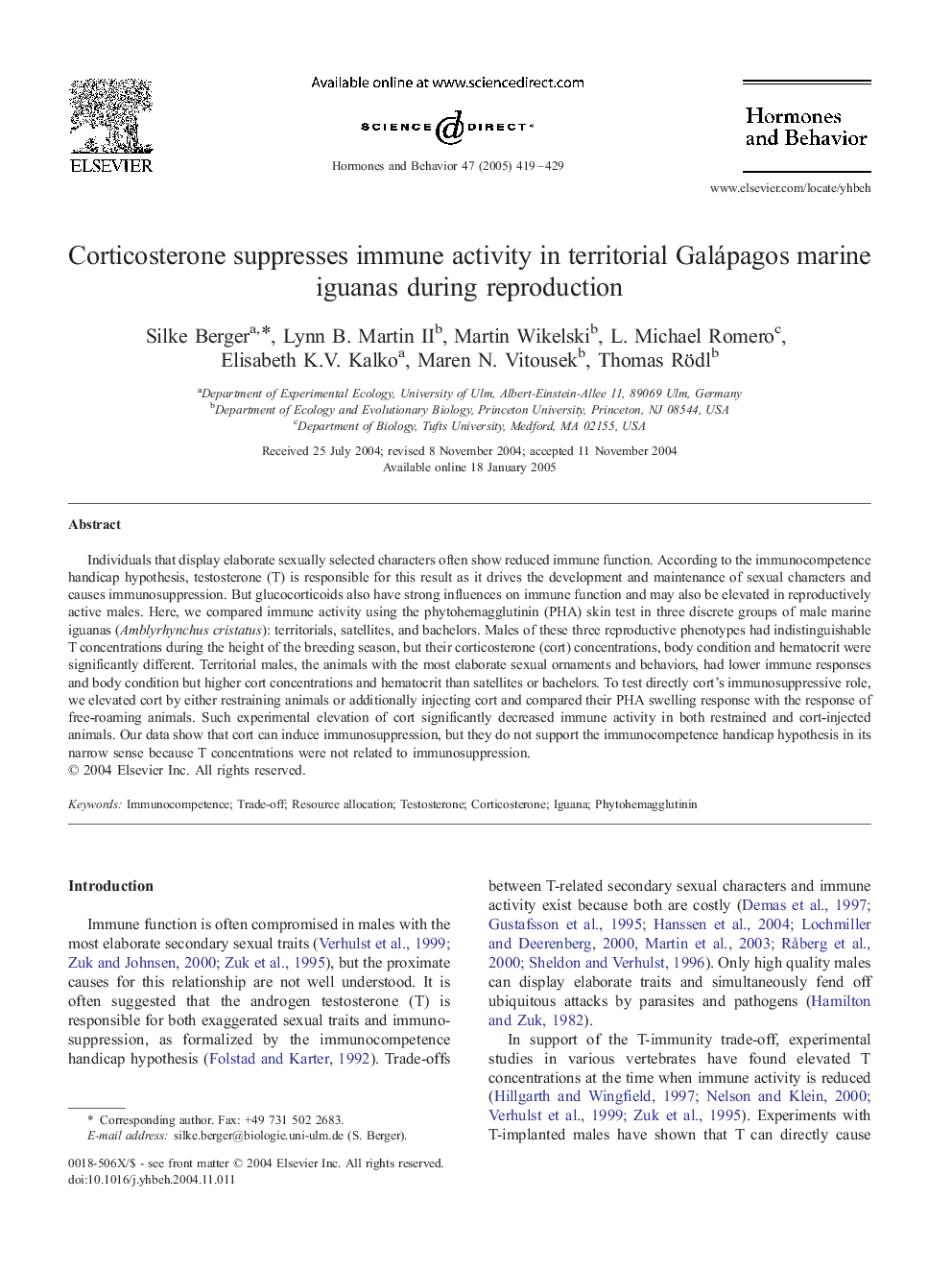| Article ID | Journal | Published Year | Pages | File Type |
|---|---|---|---|---|
| 10301182 | Hormones and Behavior | 2005 | 11 Pages |
Abstract
Individuals that display elaborate sexually selected characters often show reduced immune function. According to the immunocompetence handicap hypothesis, testosterone (T) is responsible for this result as it drives the development and maintenance of sexual characters and causes immunosuppression. But glucocorticoids also have strong influences on immune function and may also be elevated in reproductively active males. Here, we compared immune activity using the phytohemagglutinin (PHA) skin test in three discrete groups of male marine iguanas (Amblyrhynchus cristatus): territorials, satellites, and bachelors. Males of these three reproductive phenotypes had indistinguishable T concentrations during the height of the breeding season, but their corticosterone (cort) concentrations, body condition and hematocrit were significantly different. Territorial males, the animals with the most elaborate sexual ornaments and behaviors, had lower immune responses and body condition but higher cort concentrations and hematocrit than satellites or bachelors. To test directly cort's immunosuppressive role, we elevated cort by either restraining animals or additionally injecting cort and compared their PHA swelling response with the response of free-roaming animals. Such experimental elevation of cort significantly decreased immune activity in both restrained and cort-injected animals. Our data show that cort can induce immunosuppression, but they do not support the immunocompetence handicap hypothesis in its narrow sense because T concentrations were not related to immunosuppression.
Keywords
Related Topics
Life Sciences
Biochemistry, Genetics and Molecular Biology
Endocrinology
Authors
Silke Berger, Lynn B. II, Martin Wikelski, L. Michael Romero, Elisabeth K.V. Kalko, Maren N. Vitousek, Thomas Rödl,
